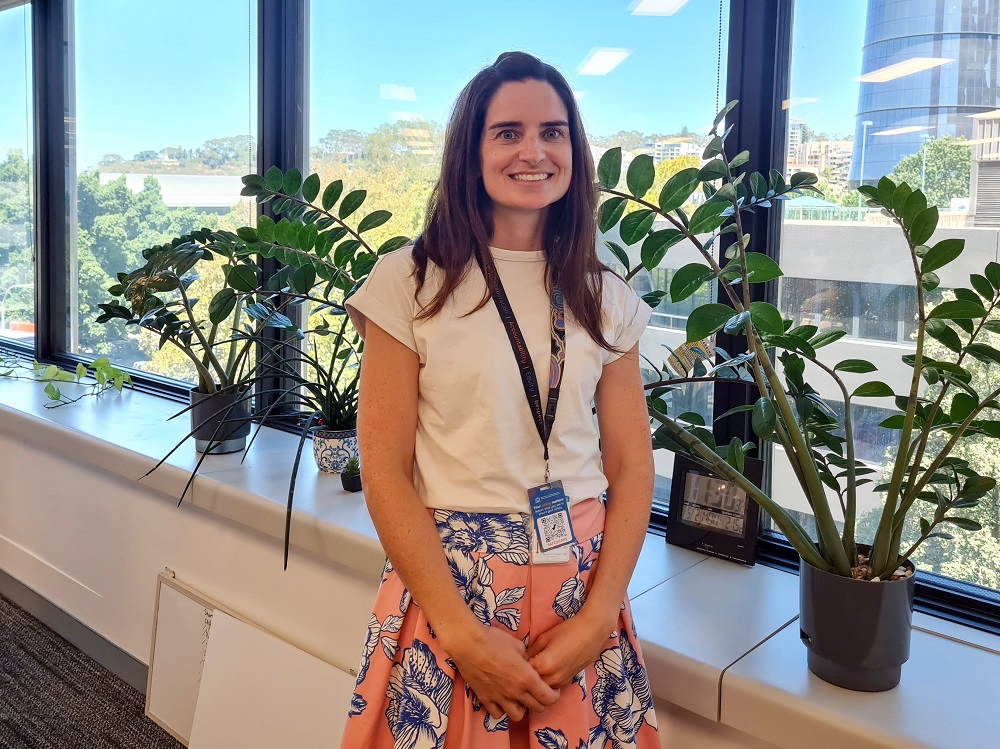Role helps Karen answer research calling
 Karen Nitsche – Senior Evaluation and Information Officer, Research and Evaluation, Child and Adolescent Community Health (CACH)
Karen Nitsche – Senior Evaluation and Information Officer, Research and Evaluation, Child and Adolescent Community Health (CACH)
Karen Nitsche has been fascinated by science ‘and the way things work’ ever since she was young girl.
‘The scientific method has always really appealed to me,’ she reveals.
‘Being given the freedom and experiences to explore the natural environment as a child enabled me to nurture that curiosity.
‘I really enjoy problem solving and the scope for creativity that comes with every research question and project.’
After graduating from Curtin University with a degree in Human Communication Science, Karen embarked on a career as a speech pathologist.
‘But as a clinician there were always research questions bouncing around in my head, and involvement in research has always been calling me,’ she reveals.
Now employed by Child and Adolescent Community Health as a senior evaluation and information officer with the Research and Evaluation team, Karen has finally answered that call.
‘My current role allows me to work across a broad range of child health areas, tackling complex issues with other passionate and very clever scientists, the outcomes of which will have a big impact on the lives of West Australian children,’ she says.
‘I work with clinicians to develop clear research questions and protocols, provide support through the ethics and governance approval process, and manage research projects once they are off the ground.
‘My clinical experience places me in this unique position because I really understand the realities of service delivery but can also support the rigour required for research.’
Karen is currently working on two key projects with the Child Development Service (CDS).
‘The first is developing an outcome measurement tool that will help CDS gauge the impact of its services on the caregivers who engage with it,’ she explains.
‘It will enable us to adapt services for families and measure the impact of new clinical initiatives.’
The other project is a nurse-led clinical care pathway for the assessment and management of children with attention deficit hyperactivity disorder.
‘This innovative pathway will transform the way families engage with CDS services and is predicted to reduce waiting times and improve clinical care for children and their families,’ Karen says.
Karen relishes being in a role that is across both the nursing and child development portfolios and that has an emphasis on research that will support prevention and early intervention.
‘I feel so privileged to be supporting innovative research in the early years that has the potential to change the trajectory of a child’s life,’ she says.

